|
This month our spiritual formation practice focuses on the awareness and power of our breath. Inhaling and exhaling is something our bodies are trained to do naturally. So much we forget we do it and pay little attention to it. However when we give intention to the process we unleash a power that is beyond what we know. Martial arts, ancient yoga, and other mindfulness trainings have been using breathing for millenniums to gain self control and power. These century old art forms have found the benefits and power of using breath. Intentional breathing has also been harnessed by the spiritual community. Breath prayers have been utilized since the 6th century and in particular by Russian, Greek, and Eastern Orthodox churches. Traditionally this was a repetitious prayer used with the rhythm of the breath. Breath Prayers have naturally evolved through history to include various methods and techniques. Let's explore the impact of intentional breathing on our body and the various intentional breathing/ breath prayer techniques being used. Impact of Deep Breathing On The Body Numerous studies have researched the impact deep breathing has on the brain and how it actually changes the brain. In fact it affects the brain stem and the arousal level of an individual. Deep breathing triggers our relaxation, changes our emotional states, and impacts our overall thought processes. Check out these articles by The Verge or Forbes for further information about our physical changes from deep breathing. It's just like when we eat a big meal or Thanksgiving Dinner. Our bellies are full pushing back on the Vagus nerve which is wrapped around the stomach, esophagus, and intestines. The Vagus nerve triggers the parasympathetic nervous system slowing our heart rate and other bodily functions. So there is a direct link to breathing fully and our relaxation. "The Science of Breathing" by Jessica Levine is also a wonderful read to understand the anatomy of our breath cycle and how it impacts our overall body and mood. Deep breathing also helps focus our attention on our body and our surroundings enhancing our awareness. Our personal awareness scope widens when we use it on a regular basis. Paying attention to our breath is about training our conscious mind to be observant. The more we are able to identify what is going in our heart, mind, and body the more we can direct our life. How else are we to correct the course we are on if we do not know where we stand at the present moment? Ways To Use Intentional Breathing I will not be able to cover the extensive array of breathing techniques out there but hopefully will shed light on a few. First Dr. Chad Walding shows you three breathing techniques that you can use anywhere to help you relax. Guided Imagery - Some of us our visual people and need to be able to see something or picture something instead of just focusing on our breath. Guided imagery/ visualizations are an awesome resource helping us intentionally breath while also creating visual structures in our thoughts. If you would like to look at a few guided imagery scripts please go to Inner Health Studio. You can also find some on youtube. Progressive Muscle Relaxation - This technique also provides structure around our breathing by focusing our intentional breathing on tensing and relaxing our muscles. Here is a script by therapistaid for you to try. Search online for others if this is what works for you. Equal Breathing - This technique focuses on breathing in for a count of four and out for a count of four. It creates balance in our breathing and our body systems. Breath Prayers Breath prayers intentionally link our thoughts with our breath. Breath prayers have been called the "prayer of the heart" because it stops us from worrying about saying the right words. Our souls speak to what we feel and want in our relationship with God and the world. One form of breath prayers is to breath in with a word or phrase meaning something to you in that moment. On the breath out you can also say the word or phrase. The intentional focus is thinking about what it means to have that word or phrase breath in you and out on the world. Another intentional focus would be on invoking the presence of the Divine in our lives. Sometimes people will breath in with a word they feel they need (peace, love, joy, etc.) and out something they want to release from their body (stress, anger, negativity, etc.). If you are struggling on what phrase to use check out "50 Breath Prayers" put together by Jean Wise providing a great list of words and phrases. Of course this is just a few ways to use a breath prayer. There are numerous ways to conduct breath prayers and I encourage you to search for more. This may not be what works for you but our spiritual journey's are about being vulnerable to trying and experiencing ways to find God in our lives. I wish you the best! Chihowa Reunion is just around the corner. If you want to take a week out and focus on your spiritual life come to this event. To register please go Midlands Mission Center.
This week attempt to try one technique of intentional breathing/ breath prayer.
0 Comments
With Father's Day passing this last Sunday, it got me thinking about the first night I was a father. My wife and I were in the hospital room with the portable crib close by. We were both exhausted from the events of the day and laid down to rest as our baby slept peacefully. As I attempted to go to sleep my mind kept thinking about this precious new life sleeping close by. The very act of birth changed who I was because I was now also a father. I accepted the added responsibility to care for this life and raise him with love and compassion. My mind wandered through what this meant and the hopefulness I had for what my baby's life could be. I also vividly remember the concern I had for this baby. Was he still ok? Is there anything that could obstruct his breathing? What if I am asleep and can't respond if he needs me? These worries had me getting up multiple times to check that his little chest was going up and down. It was after some time of doing this dance from bed to crib that I found myself praying. It was in this prayerful moment where I accepted the thought and fact God gave him lungs to breath and I have to trust he can do that. It was reassuring as I was reminded that in life is power. This little baby though dependent on others is already adapting to this new world. I also recognized that no matter how hard I try I cannot always be there when things go wrong. As a father I have to remind myself of these first moments often. When my worries sneak up into my thoughts I tell myself God has empowered us to grow and use the abilities we have in this world. Sometimes it will be difficult however we are resilient and powerful in nature. My role is helping them navigate the waters of their life while upholding their worth and value. I'm An Imperfect Father I am human and many times I am not at my best when it comes to parenting. Especially when there is added stress from relationships, finances, employment, etc. that impact our mood. Kids have a way of making us transform from a peaceful cat to a ferocious beast just because our litter box has been moved. I too often overreact, jump to conclusions, blow things out of proportion, or am inconsistent in my approaches. This after the fact brings shame and guilt for not being who I hope to be as a parent. I have come to find we often do not share these thoughts which are very common. We do the best we can with what we have. But that doesn't mean we cannot work at being better and research various strategies that can help improve our approaches. What Kids Need Kids need love, compassion, and empathy from their caregivers. When we as parents are able to love our children and help them navigate the rough waters of their life in an empathetic way their brain responds positively. It trains their inner neural processes to feel safe knowing they have the ability to make decisions, problem solve, and work through stress. Most of our first brain development happens from age 0-4. One study showing the impact of trauma and stress on children is the Adverse Childhood Experiences Study (ACES) conducted by Kaiser Permanente in the 90's which looked at health conditions of obese people who experienced various trauma in their childhood. What they found was the higher number of traumatic experiences or household dysfunction among youth created more severe health concerns as adults. So what our children experience from the households we create and the interactions we have produce a lifelong affect. That's why its so important we uphold our children with value and worth and find ways of dealing with our own stress in effective, non-harmful ways. If you want to take the quiz and figure out your ACE score click here. Parenting Resources So what are some good resources to help with parenting? There are tons of information out there on the internet but here are a few. Collaborative Problem Solving - Developed by Dr. Ross Greene and Dr. Stuart Ablon in conjunction with Massachusetts General Hospital as a response to the research of adverse childhood experiences by Dr. Bruce Perry. Its an approach focused on listening and creating open communication with your child while also empowering them to come up with potential solutions to concerns. If you want to learn more watch this video "Rethinking Challenging Kids". Parenting 101 - This website was developed by the Child Development Institute which gives basic tips on parenting and how to handle various challenges. Conscious Discipline - Is an approach focusing on creating a safe, connected, problem solving environment for your child. It works on developing choice in kids and uses moments of conflict as opportunities to teach and learn. To learn more go to the website. God As A Father Being a father has added a new dimension to my spirituality and understanding of God. With this added role, responsibility, and privilege I get to witness and be a part of lives growing into who they were created to be. It is truly incredible to witness the process of ongoing change. It seems everyday their perspective of the world positively impacts mine if I let it. The lessons I learn about being a father lets me continue to let go and trust in my heavenly parent. Many times God is depicted as a male fatherly figure. This can make some uncomfortable depending on our own beliefs about the divine or our relationship with male figures growing up. The words we use try to identify the divine so we can have some contextual way to perceive God. It can be useful to try to see God in various ways to expand our understanding what God can be. For me God as a father figure paints a picture of a loving, compassionate parent who helps me navigate the world I live in. He allows me to make decisions and learn as I decide the journey of my life. He suggests potential directions or options but ultimately the decisions are up to me. Throughout those decisions he supports and empowers me to be my best and to do it with happiness. Throughout my journey he is with me though I may not realize it. There are times when the storms in life may be too much. During them I am always welcome to find comfort in his arms until I am able to travel again. It is in his loving arms I find peace, love, and empathy. He knows me for who I am at my core despite what roles and names I take on from the world. It is this genuine, precious life he sees and loves. His constant love abides in me. Everyday through my kids I am reminded of this love God has for me and how he is working in my life. Thank you for all the positive comments and those following along!
This week be thankful for the children we have in this world and say a prayer for them. My mother recently moved off of our family farm where I grew up and where my family had lived since the early 1900's. It was a place full of life, love and laughter. I felt an odd, unusual feeling walking through the rooms and the grounds that once held my childhood. A place that formed me into who I am today. No longer were there familiar faces, recognizable objects but more a sense of emptiness. The countless moments of life played through my mind in vivid pictures unknowing when I would recall them again. Tears crept up thinking about the experiences that meant so much to not only me but my family and friends. It was in this time of reflection, silence and sadness that I felt blessed and thankful for what had been. I realized those moments I cannot have back, for time had passed and the sun had set on that part of my life. However the sadness was also filled with happiness for I knew these walls would again be filled with life, love and laughter, just from a different family. And my mother who had lived most of her life there was also moving on to a more appropriate setting for her in this stage of her life. Moving forward in our life from what we previously loved and lived is hard. Sometimes life changing events force us onward while other times its a slow decision making process that eventually leads us. Our faith journey's are also similar as we grow into new understandings and insights that change our pathways from what we had known. We try to hold onto the past as if it is the present but ultimately realize it does not hold the same weight as it once had. It doesn't mean our previous experiences were not good or beneficial but just we have changed. It is a process called faith deconstruction. It's arduous and terrifying. Accepting this process is difficult and challenging as we come into who we will be and understanding what and how we believe. Truly examining what our current and past beliefs have been is ultimately what our faith journey's are about. Its living out our faith with a trust in the divine to lead us. So let's explore faith deconstruction and reconstruction. Deconstructing Your Faith As I said earlier deconstructing your faith can be difficult however it can also be extremely powerful and rewarding. It focuses our attention on why and what we believe. It also helps us understand how we approach our beliefs and others. Studies indicate about 44% of people will go through a major faith transition in their life. There is assumption among some that deconstructing your faith means you will lose it. That is not necessarily the case. Just check out this article from Relevant Magazine titled, "How to Deconstruct Your Faith Without Losing It" to learn more about the process. The vital part of deconstruction is reconstruction. It's important we do not just throw everything out but systematically look through and build back what fits for this time in your life. Many churches think deconstruction is just slowly moving away from biblical teachings and ultimately toward atheism. However that is not actually the case. People are questioning anyways and need others to walk with them on this journey. There is a hope and renewal that takes place when we examine and build our beliefs. Trent Bell, founder of Vast Noodle, has numerous awesome videos about examining, deconstructing, and rebuilding your faith. Check out this one titled, "Why You Don't Agree With Your Beliefs Pt. 1". Stepping Into What's Right For You I know it sounds counterintuitive but examining, deconstructing, etc. can actually cause you to step further into your faith. The questioning of what you thought or believed usually causes us to dig deeper for answers. This searching process can be excruciating! But it can also be reinvigorating as you come into new insights and understandings that fit for you and your current faith development. Author and blogger, Rachel Held Evans recently passed away. We mourn the loss of this wonderful, spirited woman who brought much thought and discussion to theological circles around the world. Her books "Faith Unraveled" and "Searching for Sunday" shares great depth into the process of working through doubts in our faith and how to find what is right for you. Questions to Consider What events in your life have pushed you into new pathways? What theological beliefs are challenging to you or you are questioning? How have your beliefs changed since you were a child? What church practices or beliefs still connect you to God or your faith? Thank you for all of you following along! Please follow us on twitter or instagram. You can also follow me personally @CE_Hidy
This week ponder your faith development and what questions still linger on the forefront of your mind. Search for answers and others understandings. |
Please Note The views expressed here are those of the authors and do not necessarily represent or reflect the views of Community of Christ. We believe individuals should be allowed to have their own opinions and be at different places in their faith journey.
Categories
All
Archives
June 2021
|
|
Emporia Ministry
c/o Midlands Mission Center 7615 North Platte Purchase Drive Kansas City, Missouri 64118 Phone: (816) 221-4450 |
Copyright Midlands Mission Center 2024
|
International Headquarters
Community of Christ 1001 West Walnut Independence, Missouri 64050 Phone: (816) 833–1000 or (800) 825–2806 |
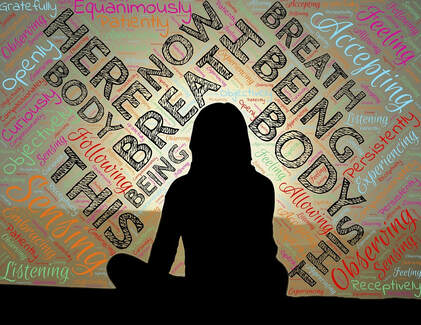
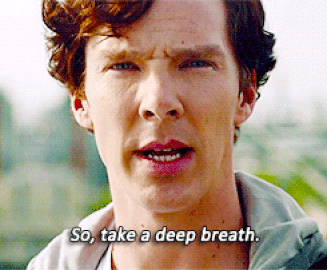






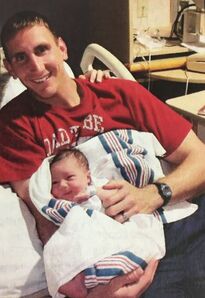
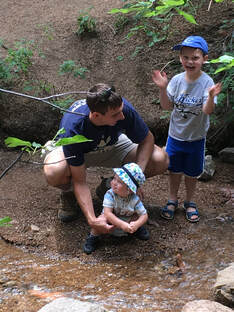

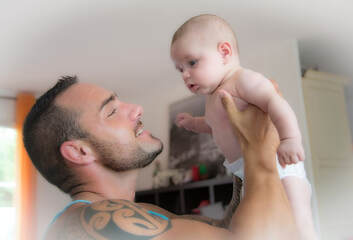



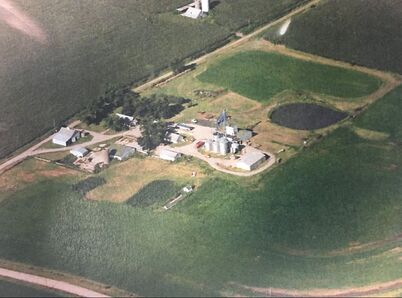

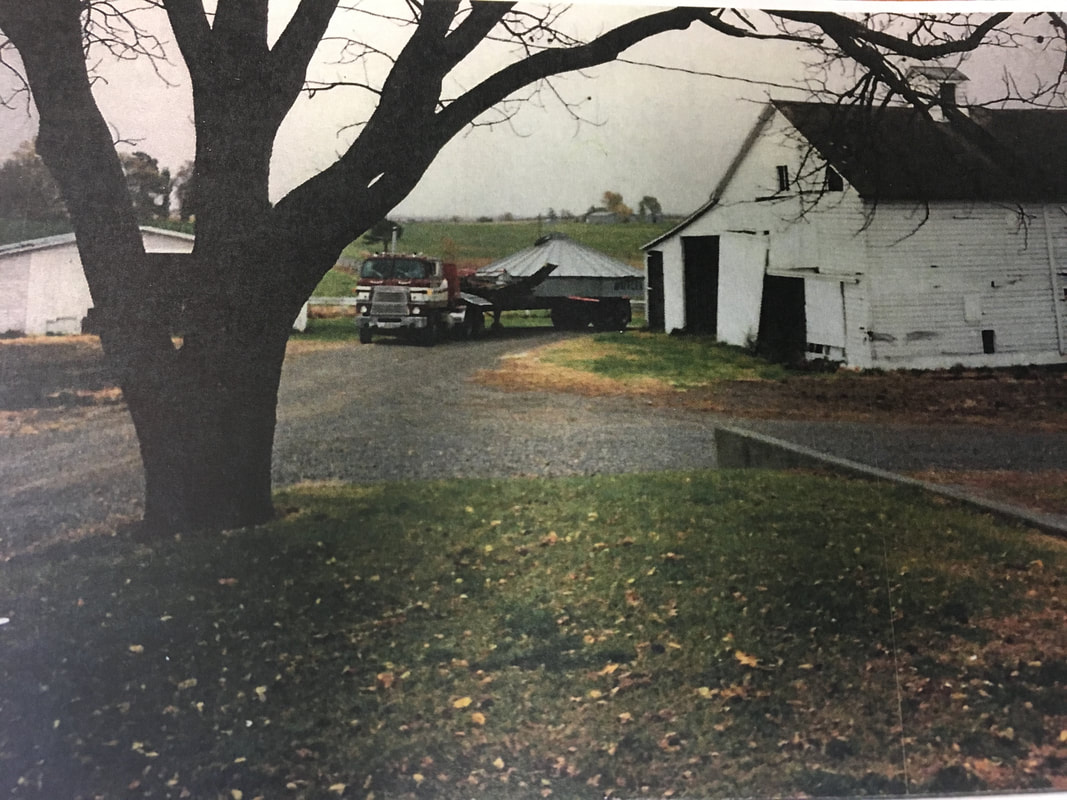

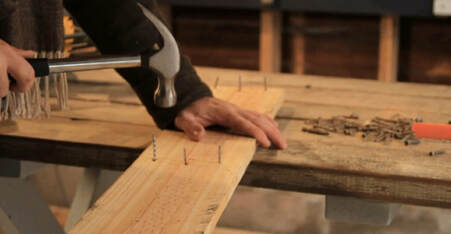



 RSS Feed
RSS Feed
